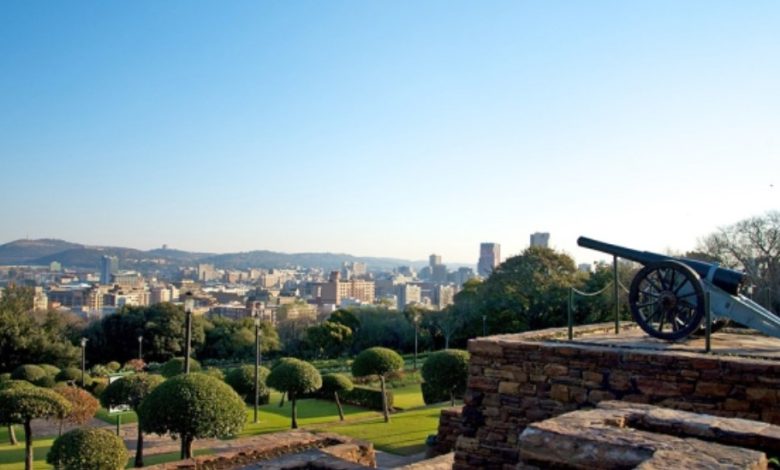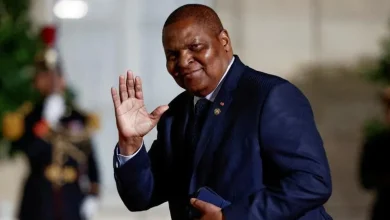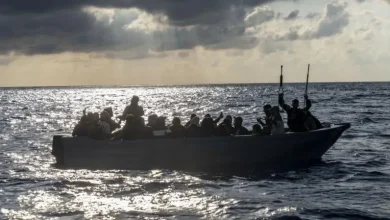SA Could Be the Bridge Between the EU and Brics

SOUTH AFRICA: Pretoria’s ability to manage relationships with key global players illustrates its potential to play a constructive role in advancing global co-operation between divergent groups of nations.
As such, SA is uniquely positioned to serve as the bridge between an increasingly economically significant Brics alliance and the EU. Brics has proven that countries with different political systems and interests can work together. If the EU could apply the same pragmatic logic to its own relations with the Brics this could be hugely beneficial to global security and economic development.
SA should therefore encourage its partners in the EU and Brics to mend their strained relations. Despite its Brics membership, SA remains ideologically aligned with the EU. Both SA and the EU believe in the importance of democracy and the role peace plays in fostering economic development.
This is the foundation of SA foreign policy as well as the founding principle of the entire European project of post-war integration.
In addition to common values, SA maintains robust economic ties with several EU members. Germany is its third-largest trade partner and source of tourists, French firms are prominent in various sectors, and agreements on defence and climate with Portugal and Spain demonstrate SA’s collaboration with states across the EU.
At the same time, SA remains an important member of Brics, having advocated for expansion of the bloc under its chairmanship in 2023 while calling for the development of a more equitable multipolar world order. Despite being one of the smaller economies in Brics, SA punches well above its weight and remains a highly respected member.
Russia’s support for the ANC during apartheid led to significant and ongoing partnerships, and China’s historical aid to the SA Communist Party helped forge strong ties. These long established relationships with fellow Brics members, combined with its Western partnerships, underscore SA’s potential as a bridge between East and West.
Among Brics members, SA stands out for its potential to mediate conflicts, owing to its nonaligned foreign policy and extensive mediation experience dating back to apartheid. For the EU, engaging with SA offers a strategic opportunity to influence Brics dynamics in line with its own values given SA’s political system and long-standing EU relations.
While SA is no longer the sole voice in the bloc from Africa, it still has well established relationships with countries on both sides of perceived geopolitical divisions and its willingness to broach topics of global importance affords SA a unique standing among African nations.
ALSO READ: Seychelles to hold presidential run-off after vote fails to produce clear winner
Pretoria illustrated its diplomatic leadership on the global stage by taking Israel to the International Court of Justice in an attempt to get more humanitarian aid into Gaza. This was a brave initiative considering the high volume of trade SA conducts with Israel’s allies, and many expressed concern about SA’s involvement.
However, various EU nations, such as Spain and Ireland, subsequently applied to join SA’s case, while France has come out in support of recognising a Palestinian state. That several prominent European countries have been willing to follow SA’s lead on this issue is a vote of confidence in SA’s global leadership credentials.
SA also demonstrated its mediation capabilities by participating in an African peace mission to Ukraine in June 2023, successfully proposing solutions to both Kyiv and Moscow, a feat no European interlocutor has been able to achieve. This was before India’s Narendra Modi or America’s Donald Trump made similar overtures towards both parties in efforts to help resolve the conflict.
The EU, in contrast, has been particular reluctant to engage in diplomacy with Russia. But now that Russia and the US are engaging in talks, perhaps Brussels will reconsider SA’s call for a diplomatic solution instead of prolonging the conflict with more sanctions and arms transfers.
Europe is a net energy importer, so conflicts that disrupt global energy supplies, such as the War in Ukraine and conflicts in the Middle East, are felt particularly acutely on the continent. The EU may struggle to reconcile demands for austerity, more social spending and increased military expenditure in this context.
While Brics members such as China, Russia, India and the United Arab Emirates spend billions courting Africa, the EU appears to have become distracted by these internal dilemmas. This could make it difficult for the EU to lead on the global stage and over time emerging markets could be drawn further into the orbit of the rising Brics powers.
Europe should remain alert to this risk. Aligning with Washington’s foreign policy objectives has been hailed as a sign of strength and unity, but in the long run it could prove costly. Trump’s re-election has already seen US support for Ukraine decline, with Washington applying tariffs on its European allies. As such, the EU may benefit from retaining some bandwidth for other international partners.
The recent expansion of Brics to include major emerging markets such as Indonesia, as well as partner countries such as Malaysia and Vietnam, means maintaining healthy relations with the bloc would support Europe’s strategic autonomy at a time when the US has acted increasingly unilaterally with little regard for the interests of its European allies.
So while Brussels has largely aligned with Washington in confronting Brics states such as Russia, China and Iran, a foreign policy based on peaceful coexistence and diplomacy would better serve Europe’s long-term economic interests while boosting trade with SA.
That is why France supported former US president Barack Obama’s nuclear deal with Iran, and Hungary has consistently called for dialogue with Russia. Europeans know that peace is better for business and have already shown a willingness to engage in diplomacy with perceived adversaries. SA should encourage Europe to move further in this direction.
The EU is SA’s biggest export market, so if peace is good for Europe it is also good for SA. Similarly, as the US embraces protectionism the EU and Brics should embrace free trade to offset potential economic losses.
The recent free trade agreement concluded between the UK and India is a positive development in this respect and hopefully the EU will make similar efforts to support trade with emerging markets in response to Trump’s disruptive trade policies.
Considering how ongoing conflicts have hurt Europe’s economy, the EU can only benefit from constructive dialogue and a peace-orientated foreign policy agenda. Pretoria can help facilitate this dialogue and help build a bridge between the EU and its perceived adversaries within Brics.





